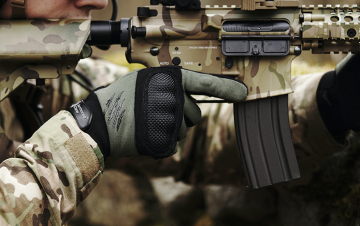Questions concerning military service often pose significant challenges, particularly when it comes to the decisions of the Military Medical Commission (MMC). Appealing an MMC decision can be critically important for individuals who believe they were mistakenly deemed fit for service. This article explores the issues lawyers address, how to appeal MMC decisions, and the legal mechanisms available for protecting your rights.
What is the Military Medical Commission (MMC) ?
The Military Medical Commission (MMC) is a specialized body that determines an individual's fitness for military service. The MMC's decision is based on the results of medical examinations and an analysis of the individual's health condition. The terms of passing the MMC process depends on the specific case, but the procedure typically takes from several days to several weeks.
How to appeal the MMC decision ?
Appealing the decision of the MMC can be done through two main approaches:
Extrajudicial Appeal
In this case, an appeal is filed with a higher authority capable of reviewing and potentially overturning the decision. The appeal should include:
- Justification for disagreeing with the decision.
- References to medical documents or expert opinions.
- A request for a repeat medical examination.
- Submission of the appeal to the regional military enlistment office.
- Engaging independent medical experts to confirm the presence of medical contraindications.
When drafting such documents, it is important to present your position as clearly and convincingly as possible, referencing legislation and the evidence provided. A lawyer may also request additional documents needed to support your position or arrange for an independent expert review. Well-prepared complaints and applications significantly increase the chances of having disputed decisions reconsidered.
Judicial Appeal
If extrajudicial measures are unsuccessful, a court case may be initiated. A lawyer can assist with:
- Drafting the statement of claim.
- Collecting evidence demonstrating the applicant’s health condition is incompatible with military service requirements.
- Representing the client in court.
In the case of legal proceedings, it is crucial to adhere to the procedural deadlines for filing a lawsuit, which are usually three months from the date of receiving the VVC decision. It is also recommended to involve qualified lawyers with experience in handling similar cases. A court decision can impact not only the annulment of the VVC decision but also the protection of the applicant’s rights in the future. To improve the chances of success, it is advisable to provide the most comprehensive medical justification and expert opinions possible.
How Can a Lawyer Help?
- Case Evaluation and Consultation. A lawyer will thoroughly review the client’s situation, including medical documents, the MMC’s decision, and examination circumstances. The consultation helps determine whether there are grounds for appeal.
- Arranging Independent Examinations. The lawyer can organize an independent medical examination at private or state clinics. Results from such examinations may serve as key evidence in the case.
- Drafting Complaints and Applications. A lawyer prepares complaints for higher authorities or the court. These may include: appeals against the MMC decision, statements to the prosecutor’s office regarding potential violations, claims for declaring decisions illegal.
- Negotiating with Officials. Sometimes issues can be resolved without litigation. The lawyer may negotiate with commission members, medical personnel, or representatives of the military enlistment office.
- Court Representation. If other methods fail, the lawyer represents the client in court. In such cases, it is crucial to provide clear evidence of the decision's unlawfulness, and a professional attorney ensures the proper preparation of materials.
To strengthen your position, it is essential to gather as much evidence as possible that supports your disagreement with the VVC decision. This can include additional medical opinions, extracts from medical records, and independent expert evaluations. If necessary, you can seek assistance from a qualified lawyer who can help draft a well-structured application.
Question
Does the MMC Decision Have an Expiration Date?
Answer
The validity of an MMC decision depends on its nature. For instance, in cases of temporary unfitness, reassessment may be required after a certain period. For final decisions, appeals can only be made through the courts.
Question
What If the MMC Decision Has Already Taken Effect?
Answer
If the MMC decision has taken effect but you disagree with it, you can still appeal it within the prescribed time frame. For final decisions, judicial review remains an option.
Case Assessment. A lawyer carefully analyzes your documents, the military commission’s decision, and any existing medical reports to evaluate the situation.
Arranging Independent Examinations. A repeat medical examination can be organized in trusted clinics to confirm or refute the conclusions made by the commission.
Drafting Complaints and Statements. The preparation of official complaints, statements to the prosecutor’s office, or legal claims is essential for appealing unlawful decisions.
Appealing the decision of the Military Medical Commission (MMC) is possible both extrajudicially and through the courts. The choice of method depends on the case's circumstances and the availability of evidence. A lawyer can assist in application to appeal the MMC decision, gathering the necessary documents, and ensuring the client’s rights are protected.



































